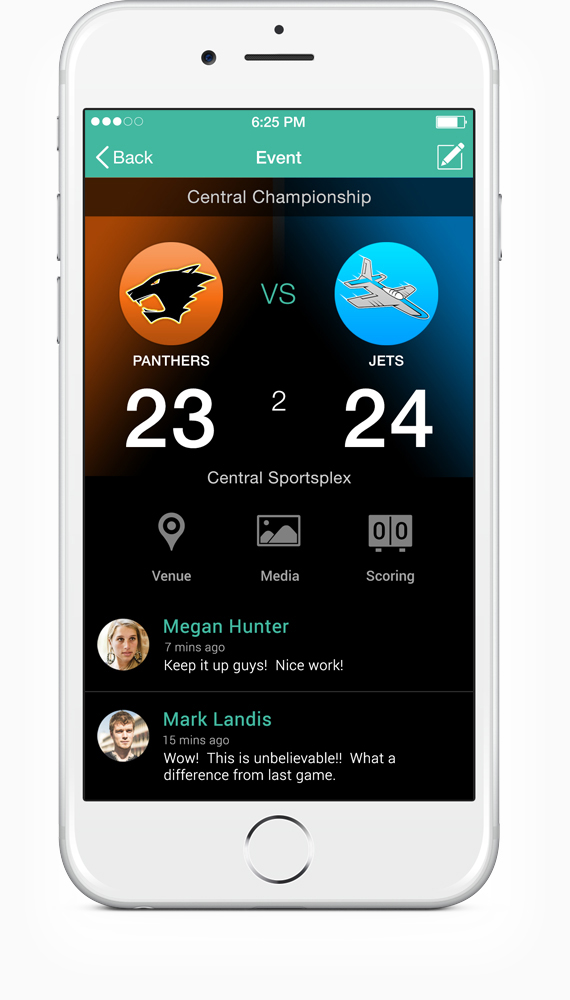After validating its online network for amateur sports in the local market, Bedford-based Eyeball Inc. has raised $1.1 million in a round of funding led by Clearwater Fine Foods Inc.
Eyeball launched its product last November, and has found a strong market among sports teams largely in the Halifax area. That was enough traction to attract a $1 million investment from publicly traded Clearwater and additional funding from a handful of angel investors.
Co-founded by serial entrepreneurs Jay Steele and Shaun Johansen, Eyeball has developed a social network for mobile devices that lets those in the amateur sports community tell each other about their games. It is built in the knowledge that there are hundreds of millions of people involved in amateur sports and virtually all of them want to share their scores and highlights.
The product, which is available on Apple’s App store and the Google Play Store, lets players, parents, coaches and fans post live scores, photos, updates and chat about a game while it’s going on.
“We believe in the promise of the amateur sports market and in the Eyeball strategy to provide a solution that resonates with all constituents – the teams, the players and the fans,” said Clearwater Chairman and CEO John Risley in a statement.
In an interview, Steele said the company has used the local market to establish the demand for the product among local sports teams. Most of the users are in the Halifax area, and the strongest market has been in the hockey community, given the popularity of the sport and the fact that Steele himself is a hockey dad.
“The market is a little push and a little pull,” said Steele. “In hockey we were pushing it – basketball as well. But there was some pull coming from unexpected places, like volleyball and floorball.”
Steele said that the acceptance of the product in the Halifax area has convinced him, his team and his investors that there is a market for an amateur sports community network. Now the task is to move it out into other geographic markets.
Steele and Johansen have previously launched and sold two startups. During the original dot-com boom in the mid- to late-1990s, they teamed up to launch Plazmic, an early mobile venture that they ended up selling to Research in Motion. A few years later, they started another mobile startup called Viigo. And again they sold it to RIM.
Steele declined to specify how many users the company now has, and was coy about the strategy for gaining income from the product. What he stressed was that the company – which has grown to eight full-time employees and doesn’t expect to raise money again for 10 months – is now in the phase in which it gains customers. He’s been through the startup lifecycle before, and though each venture is different he understands the progression.
“Every one of these startups you do is almost like an MBA,” he said. “You learn so much.”










